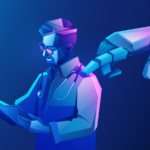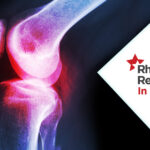Project lead Professor David Hunter said many of the challenges relating to digital literacy are ‘able to be overcome’.
Digitally based treatments for osteoarthritis could soon emerge from the shadows, following the awarding of a $1.4 million partnership program grant from the National Health and Medical Research Council.
Led by Professor David Hunter, a rheumatologist clinician-researcher at the University of Sydney, the four-year project aims to compare the effectiveness of digital approaches with current “optimal face-to-face care” and standard practice.
Professor Hunter’s project will trial a remote version of “optimal face-to-face care” – as provided by the Osteoarthritis Chronic Care Program – through the Partner model, which integrates apps (like digital sleep improvement app Sleepio) through messaging and Zoom to provide patients with education, exercise and/or weight loss advice, and facilitate effective self-management through behavioural change support.
The researchers are also in the process of developing a digital coach, which would circumvent the need for a person to be on the back end of delivering remote health.
“So essentially, that would be an avatar that would deliver all of what we would otherwise do remotely, but not necessarily have a person at the back end for Zoom calls or delivering the intervention – it’s all done digitally,” Professor Hunter said.
He described the overarching intent of the project as testing “whether we can deliver remotely delivered care that is at least as good as what we would give optimally face-to-face”.
He described some current osteoarthritis treatment as “low value” and “inappropriate”, in that many patients were pre-emptively referred to a surgeon, even though increased strength-based physical activity and medicines to support pain relief would be more suitable treatment options.
Professor Hunter also commented on a lack of coordinated care between specialists, saying “if [a patient] goes to a GP for knee pain … [they] might in parallel to that go along and see a physio or dietician, and they more often than not don’t communicate particularly well with one another about what each of them is doing”.
“Often, there is a lot of mixed messaging, and that poor communication leads to confusion for patients, and that’s not ideal for outcomes.”
He also acknowledged that a lack of digital literacy could play an “important role in a patient’s ability to engage technology”.
But he said that this was part of the reason why having multiple models of care was important, so that patients have choice, based “both upon preference but also a person’s ability to engage”.
Even though osteoarthritis primarily affects older adults who may not be as digitally savvy, Professor Hunter said, “in this day and age, most people have internet access … they’re reasonably literate with using these tools”.
“They may not necessarily be as adept at using the apps that we otherwise want them to be able to do, but we actually do quite a bit of training in the use of technology, and we use a lot of videos to help portray what we want people to do.
“A lot of challenges are able to be overcome, but I’m not belittling the importance of digital literacy.”
Professor Hunter believed the results of the study could have strong practical implications for osteoarthritis care.
“In an ideal world if we are able to demonstrate that these programs are more effective than usual care, that they’re cost effective – it will provide us greater opportunity to interface with the policymakers at both the state and the federal levels about providing greater access to programs so people around Australia can access all of these.”
He acknowledged barriers to physical face-to-face treatment for those living in rural areas, saying that a digital option provided “lots of opportunities”.
“But for us, it’s really about demonstrating that these work, and then we can go to the policymakers who are involved in the project as partners and say ‘we want you to scale this up and make it so it’s more available and accessible for everybody’.”





